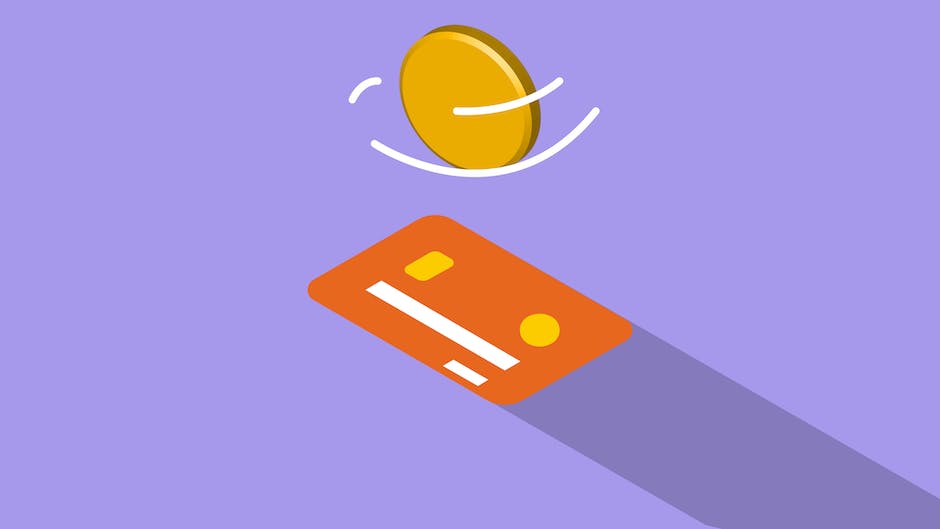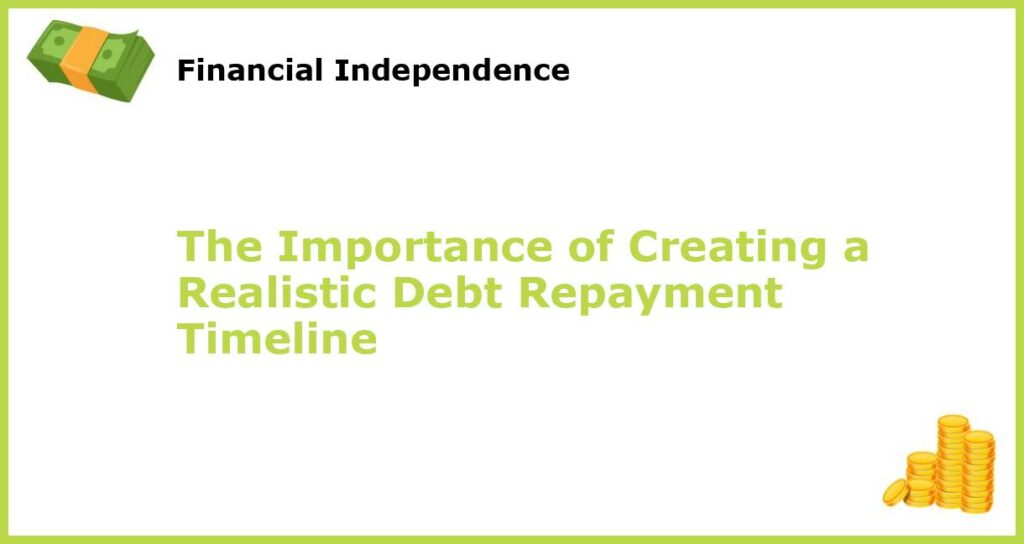Debt is a pervasive issue for many people. It can be a constant source of stress, anxiety, and uncertainty. However, with the right tools and strategies, it is possible to create a realistic debt repayment plan that can help you achieve financial stability and independence. This article explores the importance of creating a realistic debt repayment timeline and provides some helpful tips for achieving success.
Understand Your Debt Situation

The first step in creating a realistic debt repayment timeline is to gain a clear understanding of your debt situation. This includes knowing the total amount of debt you owe, the interest rates on each loan or credit card, and the minimum payments required on each. It’s also crucial to consider any irregular expenses that may arise, such as medical bills or car repairs, that could impact your repayment plan.
To fully understand your debt situation, you may want to look at your credit report. This document will outline all of your outstanding debts and provide details about your credit history. It can also help identify any errors or inaccuracies that could be negatively affecting your credit score.
Another important factor to consider is your debt-to-income ratio. This is the amount of debt you owe compared to the amount of income you earn. Ideally, your debt-to-income ratio should be no more than 36%. If it is higher than this, you may need to consider ways to increase your income or reduce your debt in order to create a realistic repayment plan.
Set Achievable Goals

When creating a debt repayment timeline, it is important to set achievable goals. This means setting realistic deadlines and payments that can be met without causing undue stress or sacrificing basic needs. While it may be tempting to throw as much money as possible at your debt, it is important to maintain a sense of balance and sustainability.
One way to set achievable goals is to break down your debt into smaller, more manageable chunks. For example, you might set a goal of paying off one credit card within the next six months. Once you achieve this goal, you can move on to the next debt on your list. This approach can provide a sense of accomplishment and momentum, making it easier to stay motivated throughout the repayment process.
Consider the Snowball Method

The snowball method is a popular approach to debt repayment that can help individuals gain momentum and see progress quickly. This method involves paying off the smallest debts first and then moving onto larger debts in a cascading effect. This can provide a sense of accomplishment, making it easier to stay motivated throughout the repayment process.
When using the snowball method, it’s important to continue making minimum payments on all of your debts. Then, any extra funds you have can be put towards paying off the smallest debt on your list. Once that debt is paid off, you can move on to the next smallest debt, and so on.
Use Debt Management Tools

There are numerous debt management tools available that can help you create and stick to a realistic repayment plan. Debt calculators can help you understand the true cost of your debt over time, while budgeting apps can help you allocate funds appropriately and monitor your progress towards your goals.
You can also consider working with a financial advisor or credit counselor. These professionals can provide personalized recommendations and support as you work towards achieving financial stability.
Make Lifestyle Changes

Creating a realistic debt repayment timeline may require making some lifestyle changes. This could mean cutting back on luxury expenses such as entertainment or dining out, or finding ways to increase your income through additional work or side hustles. These sacrifices may be difficult in the short term, but they can make a significant difference in the long run.
When making lifestyle changes, it’s important to strike a balance between enjoying your life and staying committed to your goals. You might consider finding low-cost or free ways to enjoy your hobbies and interests, or exploring ways to earn extra income that align with your skills and passions.
Stay Accountable

It can be challenging to stick to a debt repayment plan alone. One effective way to stay accountable is to share your plan with friends or family members who can help keep you on track. You might also consider joining online communities and support groups for individuals working on debt repayment, providing a sense of community and motivation.
Additionally, tracking your progress and celebrating your successes can help keep you motivated and engaged. This might mean making a visual chart or checklist of your debts and crossing them off as you pay them off, or rewarding yourself with small treats for reaching milestones along the way.
Be Flexible

While having a repayment plan is important, it is also important to remain flexible. Unexpected expenses may arise, or changes in income or employment may occur. By remaining flexible and adaptable, you can make adjustments to your repayment plan as needed to ensure that you remain on track towards your goals.
You might consider building in some wiggle room to your plan to account for unforeseen expenses or changes. This might mean putting aside a small amount of money each month in an emergency fund, or allocating any windfalls or bonuses towards debt repayment.
Plan for the Future

Creating a realistic debt repayment timeline is an important step towards achieving financial stability. However, it is also important to plan for the future. This means setting aside funds for emergencies, retirement, and other long-term financial goals. By taking a holistic approach to your finances, you can achieve a sense of peace and security that extends beyond debt repayment.
You might consider working with a financial advisor to help you develop a comprehensive financial plan that includes debt repayment, savings, and retirement planning. By taking a proactive approach to your finances, you can feel confident in your ability to weather any financial storms that may arise.
Celebrate Small Victories

Repaying debt can be a long and challenging process, but it is important to celebrate small victories along the way. Whether it’s paying off a credit card or hitting a savings milestone, taking the time to recognize your progress can provide a much-needed morale boost and keep you motivated to continue working towards your goals.
Remember to take time to reflect on your progress and acknowledge your hard work. This might mean treating yourself to a small reward or sharing your success with friends and family. Whatever form it takes, celebrating your small victories can help sustain your motivation and keep you on the path towards financial stability.
Never Give Up

Finally, it is important to never give up on your debt repayment goals. Even if progress is slow or setbacks occur, it is important to stay focused on your long-term financial aspirations. Perseverance and determination can make all the difference in achieving financial security and independence.
Remember that debt repayment is a journey, and it’s okay to take small steps along the way. With a realistic repayment plan, a supportive community, and a positive attitude, you can overcome any obstacles that may arise and achieve the financial stability you deserve.







